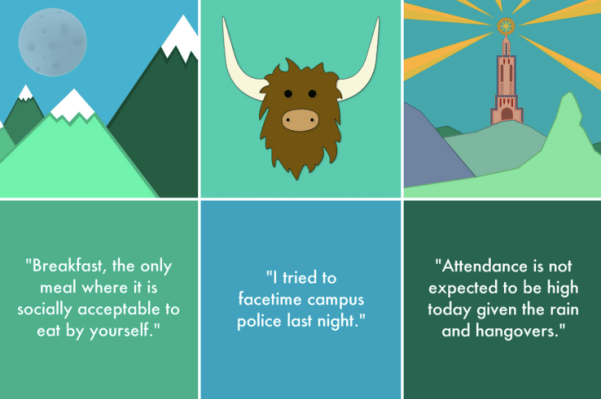It’s been about three months since anonymous messaging app Yik Yak raised their first major round of funding ($1.5 million led by Vaizra Investments, DCM, and Azure Capital Partners), and already the app has released a major update.
The app, which has traditionally been incredibly ugly (just being honest), now has a slick new design with a much-refined user experience.
For those of you who haven’t heard yet, Yik Yak is a mobile app that offers anonymous, location-based messaging. Users can choose to post messages to all Yik Yak users nearby.
The company started by targeting college campuses in the South East, and has since expanded beyond that to over 100 universities across the country. Yik Yak has not recently disclosed user numbers, but said that they grow by 100 users per network per day, with some networks already topping 10,000 users.
When we first interviewed them in February of this year, the team said they were seeing over 100,000 monthly active users, with 15,000 messages going up every day.
With the update, the app allows for easier up-voting of messages, redesigned Share Cards, and a more intuitive design. “Yakarma” scores (essentially how popular your posts are) will be shown on the top left, and the company has provided special tips for getting more “Yakarma” points for those interested. Yik Yak redesigned the composition layout of a Yak, letting you edit and change your handle from within the compose window. Plus, the team added a new “Me” page to let you organize your yaks, replies, and check out your top yaks.
Perhaps more important than these incremental updates to features is the overall cleaner look to the app. Given the recent funding, it says something about the level at which the company wants to compete, especially with Secret and Whisper already thriving.
For a long while, Yik Yak was a pretty bare-bones app. It almost reminded me of the early Snapchat, all bubbly and amateur-looking. And that’s not necessarily a bad thing, when you’re first starting out. It’s possible that younger generations feel more open to “bare bones” UIs based simply on the fact that they are assured it’s a small company — not a big corporation like Facebook — providing them services.
Yik Yak tried out the high school and middle school market before shutting down those networks amid bullying issues. After all, there aren’t great systems in place on the platform to prevent people from calling each other out by name in a network of their peers.
